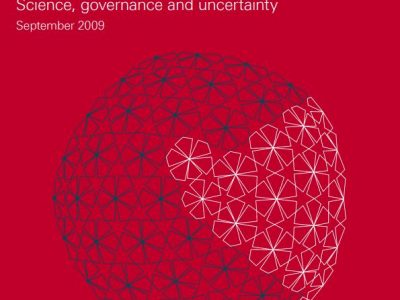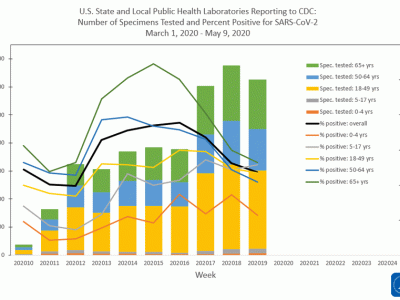Trees Will *Not* Solve Climate Change
The authors of a controversial, influential paper backtrack -- again
Last summer, I pointed to a then-new paper in Science that concluded that planting trees could remove two-thirds of historical anthropogenic carbon dioxide emissions from the atmosphere at very low costs. At the time, I characterized the claims in it and the associated media communications as "misleading, if not false, as well as potentially dangerous." I stand by that statement, and the authors have backtracked, not once, but twice. To catch up: The paper's original ...
CONTINUE READINGElection 2020: The Battle for the Senate
Control of the Senate will determine the environmental views of new judges and whether any environmental legislation can pass.
Control of the Senate will have a big impact on post-2020 policy in many areas, notably including the environment (and climate policy in particular). Right now, as best as I can tell, the Republicans still have a small edge, but that edge may be eroding. To get a sense of the state of play in the battle for the Senate, I looked at two well-respected forecasters, Cook Political and Larry Sabato. Democrats need a net gain of three seats if Biden wins (because his Veep...
CONTINUE READINGLeaving Paris (from Rex Tillerson’s Diary)
Here’s how the deal was undone.
Three years ago today, Trump announced that he would withdraw from the Paris Agreement. Rex Tillerson, who was Trump’s Secretary of State about 10,000 tweets ago, was there, behind the scenes, when Trump was making the decision. Here’s what he might have written in his diary:. April 1. Talked with DT today. He said he’d been rethinking the whole climate change thing. Hadn’t realized the science was so clear. Can’t buck scientific facts, he’s ...
CONTINUE READINGAnimal, vegetable or mineral?
A lesson in judicial humility and a thought experiment about property rights
This topic may be a bit far afield for this blog, but dinosaurs are always worth considering . . . The Montana Supreme Court has resolved an intriguing dispute about ownership of fossilized dinosaur remains that turned on the question of whether those remains were or were not "minerals." In the process, the Montana court provided an object lesson in judicial humility to a couple of Ninth Circuit judges. Mary Ann and Lige Murray own the surface estate, literally...
CONTINUE READINGNonstate Actors Could Help Govern Solar Geoengineering
Governments are not acting; maybe others could -- and should
Although reductions in greenhouse gas emissions continue to be inadequate to prevent dangerous climate change, solar geoengineering appears able to substantially reduce climate risks. More research, including outdoor experiments, is needed to reduce critical uncertainties. This could pose some environmental risks and -- arguably more importantly -- will raise diverse social concerns, such as research "sliding" into undue deployment. For these reasons, some additional gov...
CONTINUE READINGCoronavirus Tests and Their Limits
Eyeballing trends in the epidemic? Proceed with caution!
Many of us anxiously scan coronavirus statistics, looking at trends and cross-country comparisons. Warning: We need to be cautious in interpreting those numbers. There’s lots of noise in the data, meaning that it’s not always an accurate measure of what we want to know about the disease. Even death counts are not always reliable -- Florida has had about 1200 extra pneumonia deaths this year, which are probably undercounted coronavirus cases. I want to make this ...
CONTINUE READINGLemonade
Can the COVID Crisis Benefit Climate Response?
Former Obama chief of staff and Chicago Mayor Rahm Emmanuel has been cited quite a bit for this quote: You never let a serious crisis go to waste. And what I mean by that it's an opportunity to do things you think you could not do before. COVID-19 certainly meets the criteria of a serious crisis, and, as many have noted, it also presents some opportunities. The Trump Administration seems hell bent on using the crisis as cover to gut even more environmental regula...
CONTINUE READINGSuing Big Oil
Which court has jurisdiction? State court or federal?
Yesterday, the Ninth Circuit ruled in favor of the plaintiffs in two climate change cases brought against the oil industry. The court ruled on a narrow but important procedural issue: whether the cases should be sent back to state court. Cities and counties should now be able to continue with the cases, in which they want the industry to reimburse them for expenses relating to climate change. Even in state courts, they will have a lot of barriers to overcome, but at le...
CONTINUE READINGNinth Circuit Hands California Local Governments Big Climate Change Win
Local Governments' Climate Change Lawsuits Against Big Energy Belong in State Courts, Court of Appeals Rules
Today the U.S. Court of Appeals for the Ninth Circuit handed numerous California local governments a major win over major oil, gas and coal companies in several of the nation's most consequential set of climate change lawsuits. The Ninth Circuit did so in two separate opinions; County of San Mateo v. Chevron Corporation and City of Oakland v. BP PLC. The decisions were procedural rulings rather than substantive in nature. But they were nonetheless critically ...
CONTINUE READINGDay In/Day Out, Our Continuing Troubles
Some things are episodic. Others just go on and on. And on.
You might think a massive disease outbreak or skyrocketing unemployment would make our other troubles come to a halt or at least slow down. But no, not so much. Here are a dozen examples of things that refuse to stop, regardless of the day of the week, the presence of an epidemic, or a collapsing economy: Greenhouse Gases. Day in, day out, regardless of pandemics, wars, or national holidays, GHGs keep trapping heat. The most important GHG, CO2, can remain in th...
CONTINUE READING










